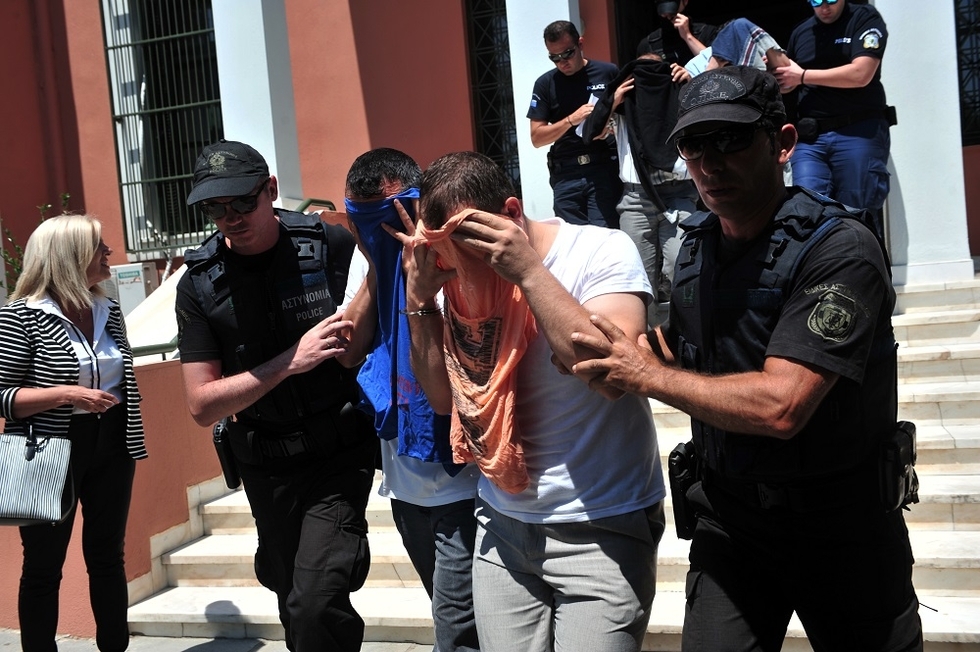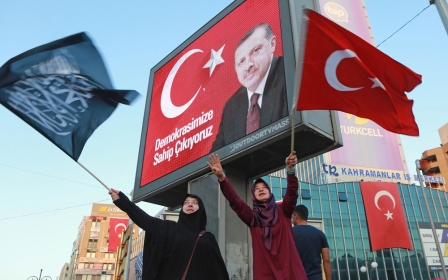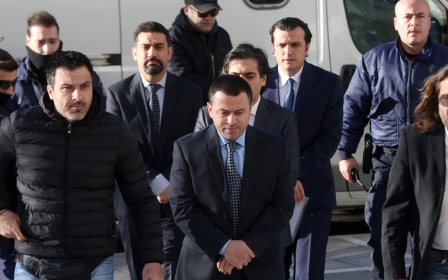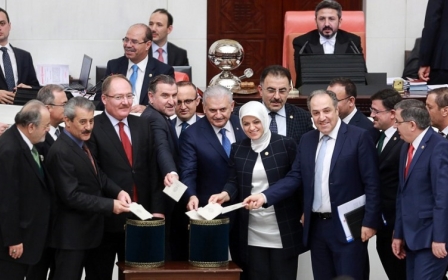Turkey threatens migrant deal with EU after Greece blocks coup case

ISTANBUL, Turkey – Turkey’s foreign minister on Friday threatened to take whatever steps were necessary, including the cancellation of a migrant deal with the European Union, if Greece did not turn overturn a ruling by its top court and extradite eight Turkish soldiers to Turkey.
"We will take whatever steps are required, including the cancellation of the readmission agreement," Mevlut Cavusoglu was quoted as saying by Turkey’s state-run broadcaster TRT.
"We demanded that the eight soldiers be tried again. This is a political decision, Greece is protecting and hosting coup plotters."
Turkey’s justice ministry issued a second request to Greek authorities for the extradition of the eight soldiers earlier on Friday.
In reply, the Greek government said in a statement: "The judiciary is independent in Greece. Court decisions are respected and binding."
"Greece condemned the coup right from the off and made clear that the country does not welcome putschists."
Greece’s supreme court ruled on Thursday not to extradite eight Turkish soldiers who flew a military helicopter to northern Greece and sought asylum on 16 July, a day after a failed coup attempt in Turkey.
Their asylum applications were rejected in July but are currently being appealed.
The Greek court also ordered that the officers - two commanders, four captains and two sergeants - be released from police custody.
The Istanbul chief prosecutor’s office on Thursday had responded to the Greek court’s ruling by immediately issuing arrest warrants for the eight soldiers.
Turkish President Recep Tayyip Erdogan was also reported as expressing his displeasure at the Greek government for not keeping its word.
He told reporters aboard his flight back to Turkey on Thursday after a visit to east Africa that the Greek prime minister had promised to have the soldiers extradited within "two to three weeks" in a conversation after the failed coup attempt.
Ankara says the eight soldiers are terrorists and must be tried in Turkey for their crimes. It has said they will receive fair trials.
Since 20 July Turkey has been under a state of emergency, which among other powers grants extended powers of arrest, detention and pre-trial procedures to the government.
The controversial migrant deal signed in March 2016 between Turkey and the EU has been vital in curbing the illegal and often dangerous crossing of migrants from Turkey’s Aegean coast to nearby Greek islands.
The readmission agreement, which Turkey says is part of the deal, meant EU member states could send back migrants whose asylum requests were denied to Turkey for a consequent return to their countries of origin.
Greece was one of the biggest beneficiaries of these agreements with Turkey, as it resulted in a much lessoned burden on its facilities and resources.
The government in Ankara has often used the migrant deal as a "stick" at times of disagreement with EU states.
May visit and potential Cyprus hurdle
The timing of this emerging crisis between Turkey and Greece also has the potential to create an additional hurdle for UK prime minister, Theresa May, during an expected visit to Ankara on Saturday.
Although commerce is likely to be the top item on May’s agenda as she seeks post-Brexit trade deals, she was also expected to discuss the issue of potential reunification of the divided island of Cyprus with Erdogan, who is seen as key to any success for the ongoing reunification process.
Any tension between Greece and Turkey is likely to directly impact the Cyprus negotiations, which are already tense.
In December, Erdogan had said Turkish troops would remain on the island forever and that the matter was not up for debate.
His remarks also got the backing of Mustafa Akinci, the president of the Turkish republic of northern Cyprus.
Recent progress made in the Cyprus unification talks have been credited to years of rapprochement between Turkey and Greece, both NATO members but fierce regional rivals who came to the brink of war multiple times in the last quarter of a century.
New MEE newsletter: Jerusalem Dispatch
Sign up to get the latest insights and analysis on Israel-Palestine, alongside Turkey Unpacked and other MEE newsletters
Middle East Eye delivers independent and unrivalled coverage and analysis of the Middle East, North Africa and beyond. To learn more about republishing this content and the associated fees, please fill out this form. More about MEE can be found here.




